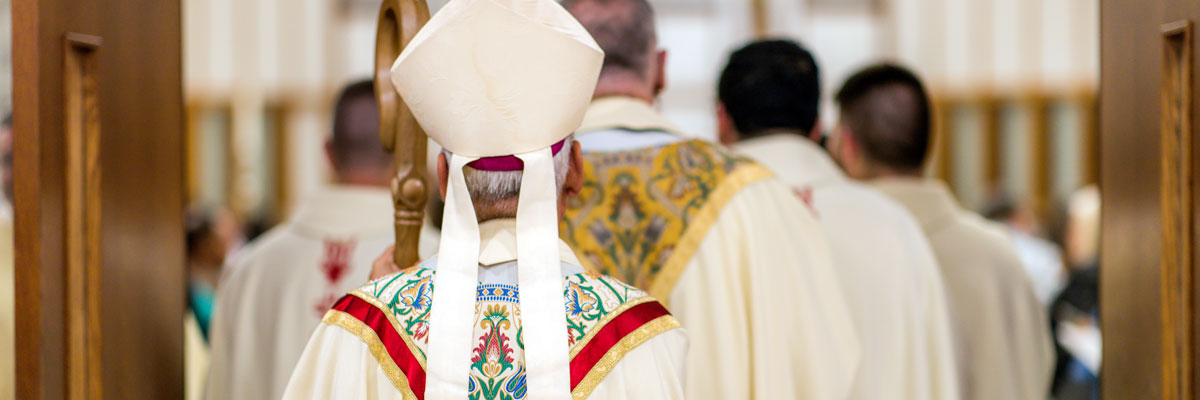Official Website of the
Catholic Diocese of Little Rock
16th Sunday in Ordinary Time, Year A
Published: July 23, 2017
Bishop Anthony B. Taylor preached the following homily at the Cathedral of St. Andrew in Little Rock on Sunday, July 23, 2017.

Bishop Taylor
I spent the summer of 1972 working on a farm disking and plowing, which was hot and dusty work, and hauling hay and stacking the bales in the hayloft of the even hotter and dustier barn, which was the most physically demanding work I have ever done.
And in Jesus’ time it was even harder. They didn’t have mechanized equipment and the climate there is even hotter and dustier than it is here. Moreover, in those days you didn’t buy seeds for planting, you set aside the best grain of each year’s crop to be planted in the next, meaning a lot of a farmer’s backbreaking work simply got put back in the ground.
There were no weed killers either — weeds were pulled by hand — nor was there any crop insurance or government disaster money in case of drought, fire, floods or storms or in the event of vandalism as in today’s Gospel, sabotage by enemies.
Not all mortal sins are premeditated, but as one of my seminary professors once said, you don’t commit mortal sins by accident. It takes energy to commit really big sins, at least the first time or two that you commit them.
Have you ever wondered where the bad guy in the parable you just heard got the weed seeds that he planted among his neighbor’s wheat? You can’t buy weed seeds at the store — there’s no market for weeds! He must have harvested the weed seeds himself the previous year so he’s been planning this for a long time.
He had to invest just as much work harvesting those weed seeds as he would have had to do if it were good grain. Then he had to take time away from working his own field to go over and harm his neighbor. Notice how much effort he invested in doing evil. This was not done on impulse — it was cold-blooded, premeditated evil.
Not all mortal sins are premeditated, but as one of my seminary professors once said, you don’t commit mortal sins by accident. It takes energy to commit really big sins, at least the first time or two that you commit them. The enemy in today’s Gospel invested as much energy in trying to produce a bad crop for his neighbor as it would have taken to produce a good crop for himself.
And notice how the wise farmer responds: he judges that in this particular case it is most prudent not to retaliate — he doesn’t even take him to court. He simply lets the weeds grow for now lest he damage the wheat in a premature attempt to eradicate the weeds. Harvest that year will be twice as much work, but it can’t be helped.
What Jesus is saying here is that among his followers there will always be weeds among the wheat. I am a sinner and so are you. Moreover, there will always be hypocrites in the Church who most of the time we just have to put up with.
But unlike in today’s Gospel where only material loss is at stake — a bad harvest — sometimes the human damage done by evil is so severe that it would be imprudent, indeed negligent on my part — or yours — not to step in and pull out those most damaging weeds by the roots, which is a very unpleasant, but sometimes necessary task as in the case of the great evil of the clergy abuse scandals.
This is by far the most difficult thing I ever have to do as your bishop, responsible for protecting the flock from wolves dressed in sheep’s clothing. So I am thankful that in most other matters prudence requires me — and you — to just be patient, and as Pope Francis reminds us, to trust in God’s mercy.
God can bring good out of evil, and anyway, he’s the one who will sort it all out in the end, not us. In the meantime, there will always be a certain amount of brokenness that we just have to sort of put up with, including inside ourselves.
As we pray in the Serenity Prayer: "God grant me the serenity to accept the things I cannot change, the courage to change the things I can and the wisdom to know the difference."









